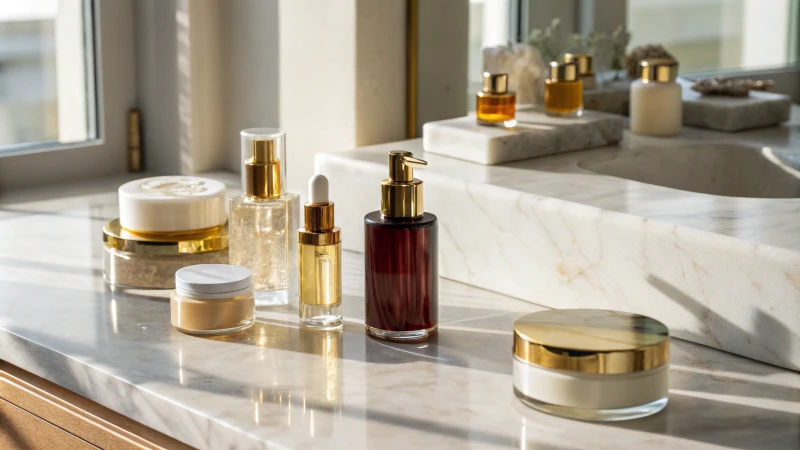
Have you ever thought about why expensive cosmetics usually come in glass bottles?
Glass bottles hold cosmetic creams because they do not react with the contents. This protection shields sensitive ingredients from contamination. Bottles also guard against UV light and temperature shifts. They add an eco-friendly feel. Glass gives a luxurious touch.
Glass offers many benefits for keeping products fresh and green. However, its influence on what people buy and how they see brands is important too. I recall my first experience with cosmetic packaging. The shine of glass bottles, sparkling like jewels, caught my eye. It goes beyond mere science; a deep emotional bond exists. Let’s explore why brands and consumers choose this classic packaging style.
Glass packaging is non-reactive with cosmetics.True
Glass is inert and doesn't react with cosmetic ingredients, preserving them.
Plastic offers better UV protection than glass.False
Amber or frosted glass provides superior UV protection compared to plastic.
How does glass preserve the quality of cosmetic creams?
Did you ever think about why your favorite face cream is in a pretty glass jar? Glass protects the cream inside. It keeps the magic safe. Your creams remain fresh and strong, just like the first day.
Glass keeps cosmetic creams fresh. It acts like a very protective barrier. This shield stops sensitive ingredients from getting dirty. It also prevents them from breaking down. Glass blocks UV light. This blocking helps products last longer. Glass makes sure creams work well.
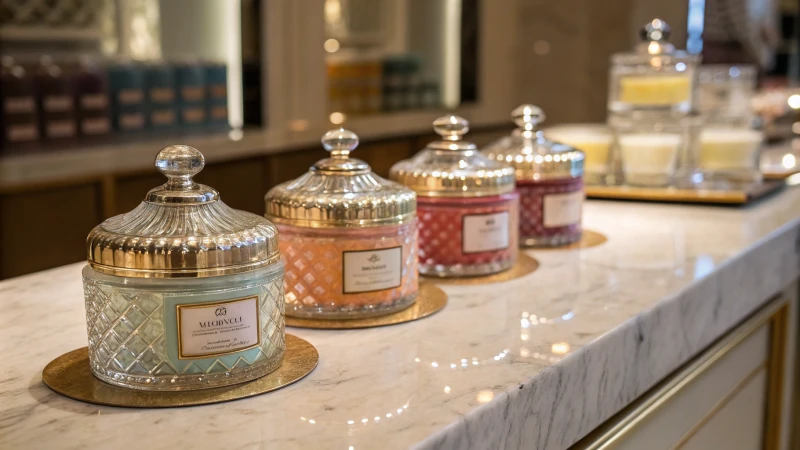
Glass as a Safe Material
I remember the first time I really understood how special glass is. At a Shanghai trade fair, I held a fragile yet strong glass jar. It seemed to promise purity and protection. Glass is known for its inert nature – it stays unchanged with what’s inside. This keeps your ingredients pure and effective.
- Chemical Stability: Glass stops chemical reactions that could harm your product.
- Temperature Resilience: It stays strong with temperature changes, protecting your formulas.
Shielding from UV Light
Glass acts as a protector against UV rays. I’ve seen many products lose their power under bright lights. Amber or frosted glass stands firm, providing the UV protection essential for sensitive creams.
| Glass Type | UV Protection Level |
|---|---|
| Clear | Minimal |
| Amber | High |
| Frosted | Moderate |
Beauty and Consumer Views
Picture this: a store with bright glass-packaged products showing luxury. I always feel attracted to them. It’s not just about looks; it also feels good. Glass speaks of quality that plastic can’t match.
- Luxury Perception: That premium vibe makes it essential for top brands.
- Tactile Experience: Holding a glass jar feels special – it feels right.
Eco-Friendliness of Glass Packaging
Today, everyone talks about helping the earth, but who really does? Glass does. It’s fully recyclable and keeps its charm. I’ve seen eco-friendly shoppers love brands using recyclable materials.
- Consumer Preference: More people choose brands caring for the planet.
- Brand Commitment: Using glass for packaging shows your eco-friendly side.
For more on green packaging, explore sustainable options1.
Improving User Experience
No one likes struggling with a jar to get the last bit of product. Most glass jars have wide openings – a very useful feature for easy use and cleanliness. This design lets you get every drop, keeping freshness and extending product life.
Understanding these details helps industry professionals2 choose packaging that really improves product quality and appeal.
Glass packaging prevents UV damage to cosmetics.True
Amber and frosted glass protect sensitive ingredients from UV degradation.
Plastic is more eco-friendly than glass for cosmetics.False
Glass is 100% recyclable without quality loss, unlike many plastics.
Why is Glass Packaging More Eco-Friendly Than Plastic?
I have always wondered why glass packaging is better for the environment than plastic. It seems there is really a lot to discover.
Glass packaging is green because people can recycle it again and again without it losing quality. It is safe for the environment and can be used over and over. Unlike plastic, glass keeps harmful chemicals out of nature.
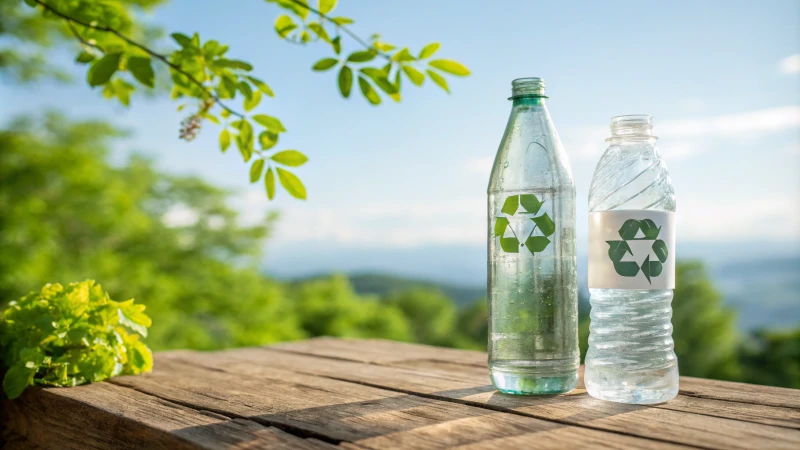
Recyclability and Reusability
Glass breaks down so it is easy to reshape and use again endlessly. It always stays strong, no matter how many times recycled. Unlike plastic, which turns into a weaker material, glass always remains pure and high-quality. This is truly important. The choice of glass is better for our world.
| Material | Recyclability | Quality Loss |
|---|---|---|
| Glass | 100% | No |
| Plastic | Limited | Yes |
At a friend’s home, I saw a pantry full of reused glass jars. Some jars held spices. Others were filled with homemade jams. The jars looked strong and added charm to the kitchen.
Chemical Safety and Non-Toxicity
Plastic containers can sometimes release harmful chemicals into food. But glass keeps food safe from such worries. It has no dangerous substances like BPA or phthalates, making it a safer alternative3 for us and for the Earth.
Energy and Resource Consumption
Producing glass does require a lot of energy. Yet, its long life and ability to recycle balance this out. Recycling glass might reduce energy use by about 40%. That is huge! Plastic, by contrast, often just ends up as trash.
Environmental Impact: Glass vs. Plastic
Creating glass causes some pollution at first; however, the ability to reuse and recycle lessens future harm to the planet.
| Aspect | Glass | Plastic |
|---|---|---|
| Recyclability | Infinite | Limited |
| Chemical Leaching | None | Possible |
| Lifecycle Greenhouse Gases | Lower with recycling | Higher |
Plastic production and breakdown hurt nature more over time.
Consumer Trends and Preferences
More individuals today prefer brands that are eco-friendly. Glass packaging fits perfectly with this trend as it feels fancy and elegant, attracting people who care about the environment.
By picking glass over plastic, businesses connect with current important values by helping protect the Earth while offering high-quality products—luxury and responsibility come with glass.
Glass packaging preserves product integrity better than plastic.True
Glass is inert and UV-protective, maintaining cosmetic efficacy.
Plastic is more recyclable than glass for cosmetic packaging.False
Glass is 100% recyclable without quality loss, unlike plastic.
How Does Glass Packaging Boost Brand Image and Consumer Appeal?
Held a glass bottle? Luxury emerges from it. Packaging is not the only story – it speaks for the brand.
Glass improves brand image and attracts consumers with its high-end appearance, eco-friendly features and ability to preserve goods. It attracts buyers who care about the environment and shows that the product quality is high. Glass offers both a beautiful look and useful advantages.
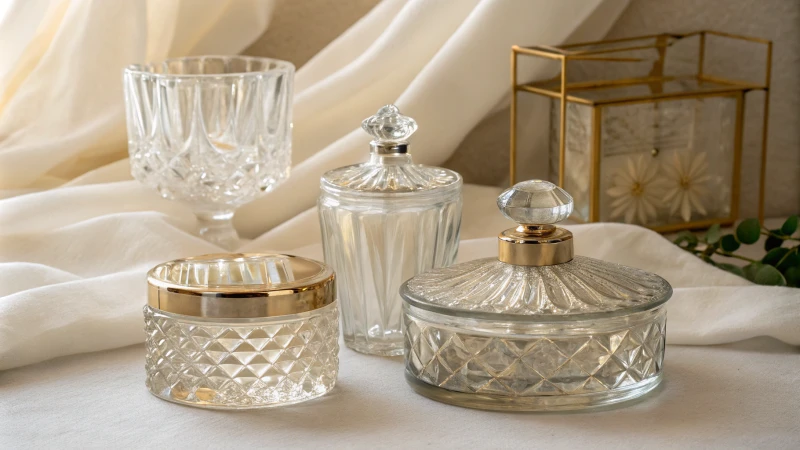
The Beautiful Look of Glass
Glass packaging looks really good. Its clarity shows the product clearly, as if the product says, "See me, as I truly am." Products in glass seem high quality and special. A friend who designs expensive skincare lines once said glass is her choice. She loves how it feels. The smooth, cool surface and weight feel really premium, quietly telling your fingers that it’s something special.
| Feature | Impact on Brand Image |
|---|---|
| Transparency | Showcases product quality |
| Tactile experience | Conveys luxury and exclusivity |
Selling Sustainability
Sustainability today is a big thing. Many people prefer products that are kind to the Earth and glass leads in this trend. It fully recycles without losing quality, making it loved by eco-friendly shoppers. Brands choosing glass don’t just sell a product; they show they care for the environment.
Learn more about sustainable packaging4 and how it influences consumer choices.
Keeping Things Fresh
Glass keeps what’s inside fresh. Many cosmetics experts say it’s the best for holding delicate ingredients. Its natural quality doesn’t mess with the contents. It’s not just about freshness; glass protects from harmful UV rays.
These qualities are particularly valued in the cosmetics industry5, where maintaining ingredient stability is crucial.
Improving Customer Use
Let’s discuss usability. Have you tried to get the last bit of cream from a tight spot? It’s hard. Glass jars usually have wide openings, making them super handy.
- Wide openings: Easy access to contents
- Easy to clean: Promotes reuse and hygiene
Explore user-friendly packaging designs6 that improve customer satisfaction.
Conclusion Placeholder
Though there isn’t a conclusion here, it’s clear glass packaging really helps improve brand image and appeal to today’s buyers. Its many benefits satisfy both the visual wants and practical needs of modern customers.
Glass packaging is non-reactive with cosmetics.True
Glass is inert, ensuring active ingredients remain uncontaminated.
Plastic packaging offers better UV protection than glass.False
Amber or frosted glass provides superior UV protection for products.
What challenges do brands face with glass cosmetic packaging?
I remember the first time I held a beautifully crafted glass bottle. It felt like holding luxury itself. Yet challenges could not be ignored.
Glass in cosmetic packaging offers beauty and eco-friendliness. Its fragility, cost and weight bring big challenges. Brands weigh these features with customer desires for luxury and green products. Balancing these needs is important. Very important. Brands need to find that balance.
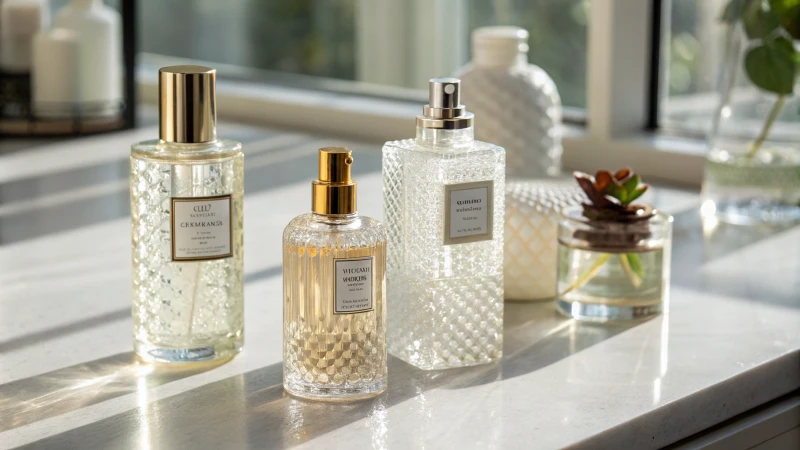
Fragility and Breakability
Glass looks very elegant, but it is known for its fragility7. I know from experience that it breaks easily. Imagine getting a lovely serum only to discover it in pieces! Brands face not only losing products but also safety risks. Once, I had to rethink all our shipping plans after several bottles broke during delivery.
Cost Implications
I remember when I compared glass and plastic packaging prices. Glass looked really nice, but it was expensive. Making and sending glass costs much more, not just because of how it’s made but also because it needs strong packing to keep it safe. Glass can really improve a brand’s image, but it needs smart money planning to stay profitable.
| Material | Manufacturing Cost | Shipping Cost |
|---|---|---|
| Glass | High | High |
| Plastic | Low | Low |
Environmental Considerations
I often talk about how good glass is for the environment. It recycles completely, but making and recycling it uses a lot of energy. Brands need to assess8 whether its environmental benefits beat the energy costs.
Consumer Preferences and Market Trends
Despite these issues, people still want glass because it seems luxurious and eco-friendly. In a market survey I did recently, many people said they liked glass over plastic due to its high-end look and green qualities. Balancing these consumer wishes with real-world challenges is tricky.
Navigating Supply Chain Challenges
Getting good glass packaging is hard. Different suppliers have different standards. Consistent quality is difficult. Once, a batch of bottles came with different sizes, threatening our product quality. This showed how crucial reliable shipping and strict quality checks are for fragile items.
Brands should create plans that match these challenges with market needs. Each choice helps balance elegance with practicality in using glass packaging.
Glass packaging is 100% recyclable.True
Glass can be recycled indefinitely without losing quality, unlike plastic.
Plastic is more eco-friendly than glass for cosmetics.False
Glass is more sustainable due to its recyclability and inert nature.
Conclusion
Cosmetic creams are packaged in glass bottles for their non-reactivity, UV protection, luxurious appeal, eco-friendliness, and user-friendly design, enhancing product integrity and brand image.
-
Discover how glass packaging contributes to sustainability and aligns with eco-conscious consumer values. ↩
-
Explore how glass packaging impacts product quality and consumer perception in the cosmetics industry. ↩
-
Explore why glass packaging is free from chemicals like BPA, ensuring product safety. ↩
-
Discover how brands leverage sustainability in packaging to align with eco-conscious consumer values. ↩
-
Understand why maintaining ingredient stability is crucial for cosmetic products’ efficacy. ↩
-
Explore innovative packaging designs that enhance user convenience and satisfaction. ↩
-
Explore real-world challenges brands face with glass packaging, including breakage and transportation issues. ↩
-
Understand the environmental costs associated with glass production and recycling. ↩



